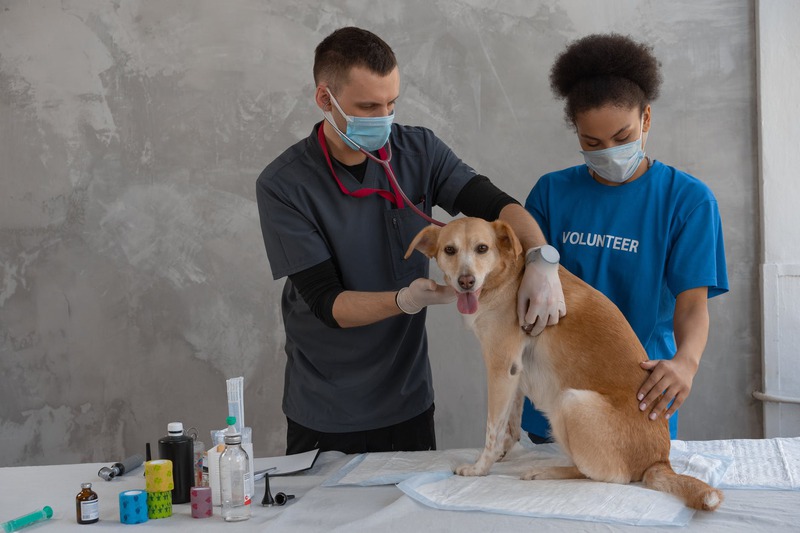When it comes to the health of our furry friends, vaccinations play a pivotal role in protecting them from a variety of infectious diseases. However, determining which vaccines your pet needs can often be a complex process. Vets take into consideration a multitude of factors before recommending a vaccination schedule. This article delves into how veterinarians decide on the right vaccines for your pet, ensuring their well-being and long-term health.
The Veterinary Assessment
Every pet is unique, and so are their healthcare needs. Veterinarians begin with a comprehensive assessment that includes several key factors:
-
Age and Developmental Stage: Puppies and kittens have different vaccine needs than adult dogs and cats, often requiring a series of shots during their first few months.
-
Medical History: A pet’s past health records provide insights into their current healthcare needs.
-
Lifestyle and Environment: Indoor-only pets may need different care compared to those spending time outdoors, where they might be exposed to more risks.
-
Local Prevalence of Diseases: Certain vaccines may be recommended based on the commonality of specific illnesses in your area.
-
Travel Habits: Pets who travel frequently may need additional vaccines or health certificates depending on their destination.
-
Legal Requirements: Some vaccines, like the rabies vaccination, are legally mandated in many places.
Core vs. Non-Core Vaccinations
Pet vaccines are split into two categories: core and non-core. Core vaccines are essential for most pets because of the widespread and severe nature of the diseases they prevent. Non-core vaccines are given depending on a pet’s risk of exposure to the disease the vaccine protects against.
Core Vaccines
-
Dogs typically receive core vaccines against rabies, distemper, parvovirus, and hepatitis.
-
Cats generally need protection against rabies, feline calicivirus, feline herpesvirus type I, and feline panleukopenia.
Non-Core Vaccines
-
These vaccines are tailored to the pet’s lifestyle and the specific diseases they might encounter. Examples include the Lyme disease vaccine for dogs or the feline leukemia vaccine for cats.
Risk Assessment and Lifestyle Considerations
One of the major deciding factors in the vet’s vaccine recommendations is your pet’s lifestyle. Key questions include whether your pet goes outdoors, interacts with other animals, or has any pre-existing health conditions that might influence vaccine efficacy.
-
Outdoor Access and Socialization: Pets that enjoy the outdoors or socialize with other animals at parks or daycares are at a higher risk of exposure to diseases and may require additional vaccinations.
-
Health and Immune Status: A pet with a compromised immune system may need a different vaccine approach. Vets will carefully weigh the benefits and risks of vaccination in such cases.
-
Geographical Risks: Living in a rural area might increase a pet’s risk of running into wildlife and contracting diseases such as leptospirosis in dogs or feline immunodeficiency virus in cats.
Tailored Vaccine Protocols
The personalized care doesn’t end once the initial vaccine selection is made. Veterinarians often adjust vaccination protocols over time as pets age or their lifestyle changes.
Booster Shots and Ongoing Protection
Booster shots are necessary to maintain vaccine-induced immunity. The timing of these boost shots depends on the vaccine, the pet’s health status, and local laws and regulations. Some boosters are administered annually, while others might have longer intervals between shots.
Record Keeping and Documentation
Meticulous record-keeping is crucial for maintaining an effective vaccination program. Veterinarians keep detailed records, which are also provided to pet owners. This documentation is particularly important when traveling, as it’s often required by airlines and international borders.
Stay Informed with Your Veterinarian’s Guidance
Staying informed is key to ensuring your pets get the right vaccines. It’s imperative to have an open line of communication with your veterinarian to understand the specifics of your pet’s vaccine needs. Regular check-ups and discussions about lifestyle changes can lead to adjustments in your pet’s vaccination protocol as needed.
Navigating Pet Vaccination Online
Many vet offices offer online resources to help you better understand pet vaccination. By visiting their website, you can access a wealth of information regarding the vaccines they offer, the diseases they prevent, and the schedules recommended for pets with various lifestyles and health considerations.
Other Essential Services
Puppy and Kitten Vet Care
Puppies and kittens demand special attention in their early stages of life to set them on the path to good health. Vets recommend a series of vaccinations to protect them from severe diseases common in young pets. Puppy shots in Wisconsin Dells, for instance, would typically include those for preventable diseases prevalent in that specific area. This series not only provides crucial immunity but also sets the foundation for their adult vaccination schedule.
The Role of the Vet Pharmacy
The chosen vaccination protocol often involves collaboration between the vet’s office and a pet pharmacy. Here, vaccines are stored under precise conditions to ensure their efficacy. Your local pet pharmacy may also provide you with the necessary information about administering some vaccines at home if recommended by your vet.
Conclusion
Deciding which vaccines your pet needs is a comprehensive process that requires the expertise of your veterinarian, tailored to your pet’s individual lifestyle, health, and environmental factors. By embracing a preventive approach and staying proactive in your pet’s healthcare, you can contribute to a lifetime of happiness and well-being for your beloved companion.





